SEASON 03 | EPISODE 02
Shelter
As the Maya Kowalski case heads to trial, we dig into the massive trove of documents about this case and begin to unpack what we know about what really happened during Maya Kowalski’s fateful stay at Johns Hopkins All Childrens in October 2016.
The Netflix documentary about the case—and the prevailing media narrative—would have you believe that Maya was ripped from her parents by a corrupt system, and that this could happen to any parent of a sick child. But did Maya really have a deadly disease for which she required the massive amounts of ketamine and other drugs she was being given? Was the hospital unfairly biased against Beata Kowalski because she was difficult, or was something more sinister at play?
We talk to national law enforcement expert on medical child abuse, Detective Mike Weber, as well as a Florida pediatrician who helps us unravel some of the myriad strange details about Maya’s medical history.
The beginning of our multi-part deep dive into the case reveals the shocking events that led up to the family separation.
Host Andrea Dunlop:
https://www.andreadunlop.net
For behind-the-scenes photos:
https://www.instagram.com/andreadunlop/
Support the show and get exclusive bonus content:
https://patreon.com/NobodyShouldBelieveMe
For information and resources:
https://www.munchausensupport.com
The American Professional Society on the Abuse of Children’s MBP Practice Guidelines can be downloaded here.
More about Dr. Marc Feldman:
https://munchausen.com
Andrea Dunlop: [00:00:00] Every investigation begins with a question, but this film starts off with an answer.
Netflix: We as parents tried to do the best we can for our children, but there’s nothing that could prepare me for what I went through. Nothing.
Beata and I had a beautiful family. But then Maya started to get sick.
Maya had advanced complex regional pain syndrome.And we know what the best therapy is for it. It’s called Ketamine.
We’re just blessed that we’ve finally seen something working. But Maya relapsed. Beata’s explaining to the emergency room this is what needs to be done. You don’t understand how much medication it takes to control her pain. They didn’t listen.
They accused Beata of medical child abuse.
Andrea Dunlop: The audio you just heard is from [00:01:00] the Netflix documentary, Take Care of Maya.
People believe their eyes.
That’s something that actually is so central to this whole issue and to people that experience this, is that we do believe the people that we love when they’re telling us something.
I’m Andrea Dunlop. Welcome to season three of Nobody Should Believe Me.
If you’d like to support the show, you can subscribe on Apple Podcasts or on Patreon, where we release all episodes early and ad free, and have tons of bonus content.
If monetary support is not an option, rating and reviewing really helps and sharing on social media or wherever you talk to people.
We also have a couple of new ways to get in touch. I’m still very on Instagram, but you can also email us at hello at nobody should believe me dot com or you can leave us a voice message at 484 798 [00:02:00] 0266 and all that information will be in the show notes.
If you are just joining us, it will be very helpful if you go back and listen to Season 1 and Season 2 before diving in. It will give you a great foundation for the concepts of what we talk about on this show.
This season, we are going to be diving into one of the things we get asked about the most. The concept of false allegations of medical child abuse.
And we’re starting with the biggest case in the headlines right now… the Maya Kowalski trial and the Netflix documentary about this story, Take Care of Maya.
You know, so what we covered in our first episode about this documentary was really what we felt had been omitted. There were these gaps in the story that you could tell from watching it, and we knew there was just so much more to this case.
And as I’ve been digging through the documentation that’s publicly available, I’ve found answers and context for some of those things that were left out. And I feel [00:03:00] like those pieces of information are really important to our understanding of this case and how these cases play out and this whole concept about false accusations that’s really catching fire right now.
And as a reminder, because I see this kind of misdirection happening everywhere in the conversation about this case, Beata Kowalski is not on trial. The hospital is on trial. Cathy Beatty is on trial. DCF is on trial.
Originally, Sally Smith and Suncoast were also on trial. They have settled out of court. I do not have details about what that settlement was or why it happened. If I get them, I will most certainly share them here.
So, Jack Kowalski, the father of Maya Kowalski, is currently suing those parties for 220 million in punitive damages.
So, we are [00:04:00] doing something that we have not yet done here on Nobody Should Believe Me. Covering a case that is happening in real time. So, this is going to be different. We’re going to have updates.
The description of the Take Care of Maya documentary on the production company’s website really tells you what you need to know about the angle that it’s taking.
My producer Tina is going to read it for us.
Tina Nole: When nine year old Maya Kowalski was admitted to the John Hopkins All Children’s Hospital near Sarasota, Florida, her only problem was a painful stomach ache.
By the time she left the facility, three months later, her health had declined, her world was shattered, and her mother was dead.
This true crime feature documentary unravels a medical horror story that is still playing out. One with the potential to uncover an overlooked national menace.
Are a handful of medical professionals saving children like Maya from Abusive Homes, or are they running a for-profit scheme [00:05:00] that destroys hundreds of families each year?
Andrea Dunlop: If you watch this film without knowing anything else about this case, you would probably leave with the impression that Beata Kowalski was a mother who was falsely accused of medical child abuse and that those false allegations drove her to kill herself.
The documentary also broadens the scope by the end to insinuate that there is a quote national menace of false accusations of medical child abuse happening in this country and that any parent who takes their child to the doctor is at risk of having that child kidnapped.
So, for someone like me, who works in this field, who has spent the last several years of my life very deep in these cases and these issues, this premise just could not be more wrong.
The actual epidemic about medical child abuse in this country is one of [00:06:00] underreporting. People who are committing this crime are not being held accountable by and large. That is what we know from all of the experts we have talked to.
So let’s start off by talking about what the concept of a false accusation would mean in a case that was at the stage that Beata Kowalski’s case was when she died, which is halfway through a criminal investigation.
It would mean that the doctors who reported their suspicions,the judge who made the no contact order and the DCF officials who were working on the case all knew that Beata Kowalski was not actually abusing her child and they were holding her daughter and keeping them apart anyway.
The plaintiff’s strategy is clearly CRPS. And if she really had CRPS, that means [00:07:00] Beata was innocent, that means she was falsely accused, that means this hospital is liable. It’s a red herring and this film, you know, really focuses on that.
And they bring up this sort of smoking gun that the hospital was billing her insurance for treating CRPS.
So the point I want to make is that the plaintiffs are leaning really hard on two things.
Number one, that Maya genuinely had CRPS.
They are leaning really hard on that. And the reason they’re leaning really hard on it is because they are using a completely false description of factitious disorder imposed on another.
And they misrepresent what’s in the DSM. They say, Oh, well, we had this Dr. Duncan evaluate her. And Dr. Duncan says in her report that if there’s a genuine diagnosis that rules out Munchausen by [00:08:00] proxy factitious disorder imposed on another. It does not. That is false.
So, in this context, a false accusation would mean that you are making an accusation that you knew not to be true, not reporting a genuine suspicion of harm being done.
And the reason I want to start this conversation by talking about what is and is not a false accusation is that this case and the media coverage about it have implications that go far beyond just this family and this situation.
And right now, in many places in the country, including a big situation in Lehigh, Pennsylvania, which we will talk about, child abuse pediatricians are under attack. They are getting pushed out of their jobs, they are getting excoriated in the press, and this has real consequences, both for those pediatricians and for the children that we trust them to protect.
I spoke to friend of the show, Detective Mike Weber, who you will certainly recognize if you’ve listened to our previous seasons, about [00:09:00] what impact this kind of media coverage has on doctors.
Det Mike: It can cause doctors not to report. Doctors are human beings. They’re subject to the same types of pressure as all of us, right? And uh, if, if, if they see, you know, societally that they, they can be vilified for this, the incentive to report is going to go away. And who’s going to yell about that?
Andrea Dunlop: Well, me, but, um,
Det Mike: Well, yeah, yeah, yeah, if it comes to light, right?
But if they don’t report it, it never comes to light. We never know. And the child just continues being abused.
Andrea Dunlop: Right.
And I mean, I think it’s not just doctors, right? It’s doctors, it’s, um, DCF or CPS, you know, the child welfare organizations, it’s the sheriff department, it’s the police, it’s the DA, it’s everyone that sees like, wow, this is how a case can play out.
But even if there is quite a lot of evidence, which we will talk through and which we have discovered there was.
So the important takeaway here is that doctors are required [00:10:00] by law to report reasonable suspicions of abuse, not to come forward with evidence.
And we also spoke to my dear friend Bea Yorker, who is an incredible expert in Munchausen by proxy and medical child abuse. She was a longtime psychiatric nurse and is a professor of law emerita.
Bea Yorker: I’m a nurse. I am a mandated reporter. I am required to report suspected abuse. I am not required to verify abuse. That’s the job of CPS, Child Protective Services, or law enforcement. As a mandated reporter, I have immunity for reporting if it’s done in good faith, if I happen to make an error and it wasn’t abuse.
On the other hand, to diagnose someone with a DSM 5 or an ICD 10 or 11 [00:11:00] diagnosis, I would need to be A physician, a psychiatrist, a PhD psychologist, or somebody within whose scope of practice it is to diagnose. As an advanced practice nurse, it’s my scope of practice to do nursing diagnoses.
Believe me, factitious disorder imposed on another is not in the book of nursing diagnoses.
So I always say to the court, I am a mandated reporter. I am qualified. To identify and to confirm, because of my advanced practice training, I am qualified to confirm whether abuse has occurred to this child, or neglect, or sex abuse, that I am qualified to do.
What I am not qualified to do, is to diagnose why, The perpetrator is doing it. And so I defer. I say, yes, in this case, the child is being medically abused and over [00:12:00] medicalized and the mother is fabricating and exaggerating and it’s up to somebody else. Hopefully, who understands that the record review that I performed is the most illuminating for diagnosing factitious disorder imposed on another and looking for fabrication.
But sometimes they need to determine, is it malingering? Is it anxiety? Is it delusion? Is it factitious disorder imposed on another? And FDIA should only be diagnosed when you both interview the suspected perpetrator and review the medical records for fabrications.
Andrea Dunlop: Again, we’ve talked a little bit about how they framed Dr. Sally Smith’s role in an incorrect way, but they made a big deal of the fact that Dr. Sally Smith only spent 10 minutes talking to them, but it’s not really it’s not her [00:13:00] role to evaluate the child’s health, it’s her role to go back through the records, which I’m assuming were extremely voluminous, and look for these patterns of deception and these patterns of medical child abuse, so that is not something, the fact that she spent, you know, they frame it as she spent it a few minutes talking to this family and just made her mind up and that’s not what happened. I mean, we can see that in the records that that’s not what happened. She was still working on her report even during, you know, this first part of the investigation.
Det Mike: Right. And her report was a 45 page report. So it was not, you know, it was not some small document. Right. And it obviously was not put together haphazardly.
One of the notes that the detective did make in her narrative that was extremely interesting to me was that an allergist had actually charted concerns for Munchausen by proxy in, in Beata in December of 2015, a full eight months before this investigation kicked off. And [00:14:00] that’s another doctor having the same concerns.
Andrea Dunlop: And there was another hospital that had reported her as well. There was a hospital that she had seen. There was a rehabilitation nurse actually made a report. One doctor just put it in his notes, I believe, and then there was another doctor that actually called it in.
And to be fair, they do mention this in the movie, that she’d been reported by more than one place, but they rushed past it pretty fast and they don’t really give any details on on that and to me I mean, I think to me one of the strongest indicators that something is amiss is if you have multiple people who have no communication with each other reporting concerns, right?
That really points away from oh, this is all at the feet of one overzealous doctor.
Det Mike: Well, and, and I, I think it’s also important to point out that, you know, a hospital like John Hopkins is a huge place. You’re going to have multiple people caring for this child that may not even know each other. Are we to believe that they’re all in [00:15:00] some big conspiracy?
Andrea Dunlop: Right. Because I think it was seven different people from just this one hospitalization at JJC reported these things about Maya, that she was only exhibiting pain when her mother was in the room, that she had made these comments.
There is a very specific protocol when it comes to reporting in these cases, and I spoke to a pediatrician in Florida about this process. She opted to remain anonymous for this interview because of her proximity to this case.
Dr Rebecca Gill: The physician makes the report to DCF or the social, whoever from the hospital makes the report. DCF takes the report. There’s a medical branch of DCF that gets involved and then it’s taken to the court and that’s kind of the process that happens and they do circle back around to the physicians for more information.
They circle back for more notes. That’s why documentation becomes so important. And then they use, the court uses that information to determine if the child is sheltered. So the physician does not make, neither does the social worker at the [00:16:00] hospital, that call has not come from them.
Andrea Dunlop: That call’s made by a judge.
Dr Rebecca Gill: Correct.
Andrea Dunlop: Very important to know that this is not a call that is being made by the doctors, and it may be based on information given by the doctors, but I, I sort of always wonder why that’s presented as suspicious, because I, I think that’s who should be making that call. That’s who’s in the position to make that call.
The film presents Beata’s behavior at the hospital as… Pushy. The defense attorney describes it as she offended someone over there. And here’s that audio from the documentary.
Netflix: I think she could be, um, a little too direct sometimes. And maybe some of the doctors took that offensively. I believe somebody at All Children’s Hospital was offended and a conflict started.
Andrea Dunlop: And they sort of say she was being very insistent. She was saying, I know my child. This is the treatment that works for her. And again, from the documentary.
Netflix: Her concern was merely administering ketamine [00:17:00] over and over, more and more and more. She was belligerent, demanding. The mom was very…
And she told me this is what you are going to do. There are risks of respiratory failure, cardiac arrest. Her daughter could die from this. And it didn’t seem like she was, you know, worried about that.
Andrea Dunlop: And again, we’ve talked about that a parent knows their child well and doctors will always listen to parents, but a parent does not have the right to go into a hospital and insist on a specific treatment, especially something as she was not asking them to give her Tylenol. She was asking them to put her in a ketamine coma and give her an infusion pump in her spine so that they could do that. That is a very serious potentially fatal procedure.
So that was what Beata was insisting upon and she made a number of comments about Maya’s [00:18:00] mortality while she was in the hospital that were not included in the film that to me when I read them were just jaw dropping.
She said… Things such as, Maya is in so much pain she wants to go to heaven and then when they were refusing to put her in a ketamine coma she said if you won’t treat her with this here I might as well seek out hospice so that I can get enough ketamine so that she can finally die. She doesn’t want to live like this anymore. And these are things that she said in front of her daughter.
So this is not the only time that Beata had talked about Maya’s mortality.
Can you tell us about what came up in some of this other documentation that we saw about Beata framing this as a terminal illness?
Dr Rebecca Gill: Beata was getting IV Dilaudid, which is an opioid pain medication for Maya to be administered at home, from Dr. Kirkpatrick. She [00:19:00] asked the IV infusion company, which is the one where she worked, for terminal to be placed on the diagnosis for the medication. Again, I don’t know if that’s to get insurance to cover it or what the purpose was, but she asked for that. They actually reached out to Dr. Kirkpatrick, who said that is out of his scope of practice to put terminal on the prescription.
Andrea Dunlop: And also, I have to say, I was struck by the second half of that letter from Dr. Kirkpatrick, which told Beata to seek out resources from her local hospice care.
Dr Rebecca Gill: Exactly. So he wasn’t willing to say it, but then recommended that. And then it still ended up somehow from the company to be on that prescription and then what it says is she went back to a second pharmacist within that Company and said can you put terminal on they again reached out to dr Kirkpatrick who said no and it was not put on at that time by that pharmacist.
So there was concern too with I believe the company that she worked with then reaching out and it seemed Dr. Patrick, at least at that point, was not [00:20:00] comfortable adding that word.
Andrea Dunlop: We can’t know for sure why Beata was making that request. We know that Maya was already receiving a very high dosage of ketamine.
What could a reason possibly be that someone would add, like, what is, what’s the purpose of adding terminal to a prescription? Like, do the insurance companies treat it differently? Does that permit a higher dose? Does it permit more coverage? Like, what could some possible reasons be?
Dr Rebecca Gill: I mean, my, my thoughts, at least from experience, would be that there are doses of pain medications you can use um, at home legally, because now there’s a lot more restrictions as well, um, in cases of palliative care or hospice care versus just a child who may need pain medication.
So, dosage that would be appropriate to use in the home or even IV opioids in the home, in my experience, I mean, that is a very rare occurrence in and of itself Um as well as the fact that insurance companies may question if there aren’t [00:21:00] certain terminal, you know, we’re asked sometimes Oh, did you mean failure to thrive or did you mean malnutrition because there’s a word that the company would say Oh, you just didn’t use the correct terminology and that terminology may be correct in that case, but asking you to put something on a Prescription that is not correct, at least in your medical opinion, is is an interesting piece, especially something that involves the word terminal is just Strange.
Andrea Dunlop: Yes. It is strange.
Now, eventually, Beata was successful in getting terminal added to Maya’s prescription. And in the testimony that was recently released, pharmacist John Schott, who filled this prescription, testified that he only added the terminal designation after a 10 minute conversation with Dr. Kirkpatrick. They questioned Dr. Kirkpatrick about this as well, and he repeated his stance that this was out of scope of his practice. to label her as terminal, and that he did not recall having this conversation with Schott. [00:22:00] Now, this testimony is happening years after the fact. There are several possibilities.
It could have been a genuine miscommunication. He could easily not remember a conversation he had many years ago. That’s perfectly… credible, um, but it does raise questions as to how this label got on there and why he would have originally said no and then possibly changed his mind and approved adding terminal to the prescription.
There were a lot of things that Dr. Kirkpatrick said in the documentary that came off very strange. Here’s a clip from the documentary of him talking about a message that he sent to Beata while Maya was at Johns Hopkins.
Netflix: This was not the first time I’ve seen this type of scenario. After a few days at the hospital, they refused to give her ketamine.
And without the high dose ketamine treatment, she had virtually no mobility in her legs at all. And that’s where you get these blood clots forming, which can break off, [00:23:00] go to the lungs, and it could be fatal. And I felt it was important. That Beata understood the seriousness of this, so I warned her in all medical probability that Maya would die a slow, painful death.
Andrea Dunlop: The whole timeline of Dr. Kirkpatrick’s treatment with Maya is very… Striking. So this is a child who has her alleged onset of these symptoms in July of 2015. And her first meeting with Dr. Kirkpatrick, where she officially gets diagnosed by him with CRPS, is just a few months later in September of 2015.
And by that fall, she had already escalated to doing these four day ketamine infusions and Dr. Kirkpatrick had sent them down to see Dr. Cantu in Mexico who performed the five day ketamine coma procedure. [00:24:00] This is the procedure that notably has a 50 percent chance of death. And this, for me, I just don’t understand how a reasonable person can look at this series of events and not have questions.
How do you go from the onset of a pain disorder in July to giving your child a treatment? for that pain that has a 50 percent chance of death. And this is the treatment that Beata was demanding at Johns Hopkins, not just that they give her ketamine, that they give her an infusion pump and put her in a coma.
So I have lots of questions about Dr. Kirkpatrick.
And in fact, another piece of his testimony was just released into the public record. This one is from 2022. So with the caveat, of course, that I am not a doctor, in going through Dr. Kirkpatrick’s testimony, there were some pretty notable things. And I think it’s important to have this information to give some context for what he says in the [00:25:00] documentary.
Number one, the language that they are always using to describe Dr. Kirkpatrick. Dr. Kirkpatrick is not board certified in either pediatrics or neurology. He is an expert in the treatment of CRPS using ketamine. His background is as an anesthesiologist and he runs a pain clinic where it appears from his website, and all the information I could find there, that the main thing he does is treat pain disorders with ketamine.
This is also the subject of his research. So it actually makes sense that he has a background as an anesthesiologist because this is one of the main things that ketamine is used for here in the U. S. Importantly, also, in the film, he’s very critical of Dr. Sally Smith for not including notes on the phone call that they had in October of 2016 in her report.
So what that tells us is that Dr. Kirkpatrick has seen this report. [00:26:00] This report has not been released to the public because the only people who have the authority to do that, unless it comes out during the case in this trial, which I don’t expect it to since Dr. Sally Smith is no longer involved in this case.
Um, the only people who have the ability to release it at this point are the Kowalskis. So another important piece of information that comes from his testimony is that Dr. Kirkpatrick, by his own admission, is doing pro bono work on behalf of the Kowalskis. He says this in his testimony that he created a quote, road map of what he believed happened in this case.
And he provided this road map to the producers at Netflix.
Um, there were a few other things that struck me about Dr. Kirkpatrick, both in his testimony and sort of the way he speaks in the film. He uses It’s really hyperbolic language. He refers in his testimony to Maya being incarcerated at Johns Hopkins. That is really notable [00:27:00] language for a doctor to use about one of the most highly respected medical institutions in the country. That is notable.
And I just have to say, he falls asleep during his testimony. There’s no other way to get around that. There’s a moment where he nods off during his testimony.
That doesn’t necessarily tell us anything about his testimony. I just wanted to include it.
So Dr. Kirkpatrick does not have any training in child abuse pediatrics, and he has never worked in child abuse prevention. And I know this because the lawyers asked him these specific questions.
So as we mentioned, he only saw Maya in his office a few times. He was not treating her for a long period of time. His relationship with her only goes back a year before the Johns Hopkins hospitalization.
And as we’ve discussed, he does not have any experience. or certification in pediatrics. So the reason that Dr. Kirkpatrick only saw Maya a few times is that none of the treatments [00:28:00] that he offers at his clinic are covered by insurance.
He claims in his testimony that that’s because his surgery center is a non profit. It is not in and of itself a non profit. He does have a research institute that appears, from what I could find, to fund research done solely by him. Um, this research institute. is a 501c3, but his surgery center, in fact, is a cash only practice.
This is all information that’s available on Dr. Kirkpatrick’s website and in the filings for his 501c3. I did reach out to his surgery center and his team for comment and they did not respond. So this was the reason that the Kowalskis started going to Dr. Hanna in the fall of 2015, and we will talk more about Dr. Hanna in an upcoming episode.
When it comes to Dr. Kirkpatrick, there are two possibilities here.
One is that Beata was genuinely on a search to help her daughter, and that she discovered this one doctor, [00:29:00] and he gave her this advice to pursue these high dose ketamine treatments and to pursue putting her daughter in a ketamine coma, and she was desperate to help her daughter, and she followed that advice.
There is another possibility. The other possibility is that she was looking for someone to give her the most extreme treatment possible. Because that is something that offenders do in these cases.
This is something we talked to Dr. Carol Jenny about.
Dr Carole Jenny: There are outlying doctors that just suck up these cases.
You know, there are cowboys out there who just have odd, uh, beliefs that, oh yes, everybody they see has Pott’s disease or everybody they see has chronic Lyme or whatever. And they come up with these diagnoses and literally, they do very well diagnosing these Oddball diseases, which, which probably exist in a small number of people, but, but [00:30:00] everybody they see has that disease.
Andrea Dunlop: And one would imagine that medical child abuse is overrepresented.
Dr Carole Jenny: Oh, yes. Oh, yes. They just flock to them. There’s a problem in the medical care community, too. There’s doctors who, who make the same diagnosis over and over and over, and the mothers get online and they say, Oh, everybody, uh, that he sees has, uh, mesenteric artery syndrome.
And that if you go there, you’ll get surgery for that. Now what happens most of the time is that doesn’t cure the pain. Strangely enough, they still go and they still get their surgery.
Andrea Dunlop: Well, and if the pain never existed to begin with.
Dr Carole Jenny: Exactly. Or the pain is totally unrelated.
Andrea Dunlop: I just wanted to interject here that in this conversation, Dr. Carol Jenny and I are talking about generalities, and we do not know if this is what was happening with Maya, but we need to hold that as a possibility rather than coming to the conclusion that it wasn’t.
Dr Carole Jenny: The other problem is that once these kids get to be a certain age, they’re [00:31:00] very much part of the problem.
They’re very much trained to be in… Constant pain and constant distress, unable to eat, whatever, and then, you know, then it’s a real hard problem because to turn that around is really an issue.
Andrea Dunlop: Yeah, I’ve done some work with survivors and I’m close with a few of them and they’ve talked about that, that they have these memories of being, you know, once they got to be 10, 11, 12, of not understanding Even their own bodies, just sort of really being so disconnected and understanding that like their mother was wanting them to say these things, to perform these things, to report these things to the doctor and, and then also just not even sometimes just being, you know, being very convinced themselves that they were sick, even once they’ve discovered that they were victims, being very afraid to try sports or, you know, do any number of things because they’ve just been so convinced that They’re, [00:32:00] they’re ill and the world is this incredibly dangerous place for them because they’re so fragile.
We are working on finding an expert in CRPS to talk directly about this and ask them some questions. Frankly, there are not that many of them and certainly every single one of them in the country right now is familiar with this case. So We have put in some calls to the Mayo Clinic, some pain specialists here in Seattle, and the University of Washington.
So we are working on getting someone to talk to.
But importantly, as Dr. Kirkpatrick says himself in his testimony, there are no lab tests or electronic imaging tests or anything like that that you can use to diagnose CRPS. Like many things, CRPS is something that is diagnosed by observation and report using something called the Budapest Criteria, which is a checklist.
So one last thing to say about Dr. Kirkpatrick. Something I found really interesting reading through this documentation [00:33:00] was the story of how Beata found out about Dr. Kirkpatrick. In the movie, Jack Kowalski describes the series of events where Maya has an asthma attack and then starts suffering from debilitating pain. And Beata stays up all night researching and that’s how she finds Dr. Kirkpatrick. But this isn’t quite how it happened. Here’s that clip from the documentary.
Netflix: We knew as parents something was wrong. And they are not doing enough. So when Beata got home, she didn’t go to bed. She researched. And that’s when she ended up finding Dr. Kirkpatrick.
Andrea Dunlop: In the psychiatric evaluation that a Dr. Duncan did of Beata Kowalski, she talks to a number of her friends. They’re sort of character witnesses, or just people to tell her a little bit more about Beata and her life. The documentary does mention Dr. Duncan’s psychiatric eval, because at the end of it…
Dr. Duncan says that if Maya legitimately [00:34:00] has CRPS, Munchausen by proxy can be ruled out. Now, as we’ve addressed elsewhere, this is not true. The film doesn’t make any mention of what’s in the rest of this evaluation, and it was something elsewhere that caught my eye. This is from an interaction with a friend that the evaluator spoke to named Jessica Stevens.
My producer, Tina, is going to read it for us.
Tina Nole: I first came to know of the Kowalski family in August 2015. My father suffers from Crohn’s disease and requires intravenous nutrition and other infusions to keep him alive. Beata was assigned to his case as his infusion nurse. One day, my father overheard Beata on the phone talking about her ill daughter who was in the hospital at the time.
When she hung up, he asked her about it and she explained how her once healthy nine year old daughter had deteriorated over the past several months after suffering from life threatening asthma attacks. To the point that she was now unable to sit up or walk. Worse than that, she was in constant agonizing pain that was hard to control and [00:35:00] getting worse as time progressed instead of getting better.
Listening to her, my father sympathized, having gone through a similar struggle with me, and suggested she consult with Dr. Anthony Kirkpatrick in Tampa. He has over 30 years of experience in treating difficult pain cases and has been instrumental in orchestrating my care and treatment several years earlier.
Mya was ultimately seen by Dr. Kirkpatrick and diagnosed with RSD CRPS. She was scheduled to receive a round of ketamine infusions at his treatment center.
Andrea Dunlop: There’s more to say about this asthma diagnosis, and we will get to that a little bit later. But what struck me, again, in the context of possible doctor shopping, is that, again, maybe she found Dr. Kirkpatrick because she was at the end of her rope. But again, considering the timeline, it’s also possible.
Also, because of the timeline here, because she said they met in August 2015, this is about a month after [00:36:00] the alleged onset of the CRPS. So when she says her doctor’s in the hospital, she’s almost certainly talking about this Tampa General hospitalization, which was one of the other times that Beata got reported to CPS.
One of the other things that really struck me actually in Dr. Kirkpatrick’s testimony is that he mentions that on one of the several times that he saw Maya when she visited his office shortly before she went down to Mexico to have her ketamine coma that he was concerned about her and had recommended that Beata take her to a doctor because she was very dehydrated and very malnourished.
There was another moment in Dr. Kirkpatrick’s testimony that was recently released that caught my eye. The lawyer who’s cross examining him is asking about what Maya’s reaction was to [00:37:00] the ketamine infusions that he started to administer in October of 2015. And he asked if after your infusions in October of 2015, did you come to believe the disease was permanent?
And Dr. Kirkpatrick says, after the infusions, I don’t think I documented that, but we do know that after the infusions, you’d get a little bit better. But much less than what I would expect. And approximately 13 days or so later, she came in in trouble. She was dehydrated. She was not taking her medicine.
She was not sleeping. She’s not eating. And she was deteriorating. It became a very serious situation at that point.
So this strikes me for two reasons.
Number one, in the film by his own. Mission, Dr. Herpathrick is extremely insistent about her getting these ketamine infusions. Now, whether or not he was advocating for her to be put in a ketamine coma, which is actually what Beata was requesting at Johns Hopkins, I don’t know.
Presumably he wasn’t because he knows that that’s [00:38:00] not presently available. legal in the U. S., so presumably he was not insisting on that, but he was insisting that she needed this high dose ketamine treatment, and yet here, by his own record, she was deteriorating after getting these treatments. The other thing that struck me about this piece is that he mentions, you know, she’s not eating well, she’s not taking her medication, and she was dehydrated.
She came into Johns Hopkins in a similar state. They brought her in for stomach pain, and one of the things in the notes is that she reported that she hadn’t been allowed to eat anything in five days. So, again, There may be some other medical explanation for why she wasn’t eating on both of these occasions, but as of right now, we don’t have one and this is not part of CRPS.
So that’s a curious thing.
And also these things around food and eating are a huge part of these cases as we know. So one of the other recently released pieces of testimony is from Dr. Cantu, who is the doctor in Monterey [00:39:00] that actually did the procedure, the five day ketamine coma with Maya. So a couple of things stuck out to me, and again, I think this mostly sticks out to me because of the timeline.
This is in the fall after a July onset. So one of the questions that they asked Dr. Kintu was, Um, whether or not all other treatments should be administered before doing something as extreme as a ketamine coma. And he says basically, yes, that yes, they should, that all of their modalities of treatment should be tried before this.
And also that for people who are getting this procedure. It should be generalized in their body, basically covering at least 80 or 90 percent of their body. So this is people who are having just full body CRPS, which is, again, extremely rare, but is something that’s known to happen. And we see, even in a lot of the video presented in the documentary, that she’s confined to a [00:40:00] wheelchair it’s allegedly really affecting her lower extremities. So this question of the full body CRPS just seems a little hazy.
The other thing I think that really stuck out, you know, when he’s describing the actual They talk about inserting a tube into the trachea and all of these invasive monitors and an aerial line and a PICC line that they have to put in because the patient is being put in a coma and so their airway can be, constructed, and they talk about how this has a risk of death and how that was discussed in front of the patient.
He also talks about how Maya is the youngest patient he’s ever done this procedure on. And one of the lawyers asks him, did you tell this family that the risk of death was 50 percent? And his answer was 50 percent or more. This had a 50 percent or more[00:41:00]
So, we are recording this on Monday, September 11th, and the pre trial hearings for the lawsuit case where Jack Kowalski is suing. Johns Hopkins, Kathy Beatty, and DCF for 220 million. Those pre trial hearings just started today. Jury selection will happen later this week.
And just as a note, of course we will give you the major updates here on the main feed, but I’m also going to be doing weekly coverage on my Patreon and Apple subscriber feeds about what is going on on a weekly basis in the trial.
And all of those links, as always, can be found in our show notes.
And we are doing this season as we go. So if you have questions about this case, if you have thoughts about this case, please reach out to us. I’m always available on Instagram. I’m at Andrea [00:42:00] Dunlop.
And in the next episode, we are going to take a deep dive with Detective Mike into the police report about Beata Kowalski and the transcript of the interview between the detective and Jack Kowalski.
That’s next time on Nobody Should Believe Me.
Nobody Should Believe Me is a production of Larj Media. Our senior producer is Tina Nole and our editor is Corine Kuehlthau.

Sisters
Share this episodeSEASON 01 | EPISODE 01SistersWe meet accomplished novelist and loving mother Andrea Dunlop as she embarks on a journey to understand the series of events that tore her family apart. We learn that her older sister has been investigated twice...
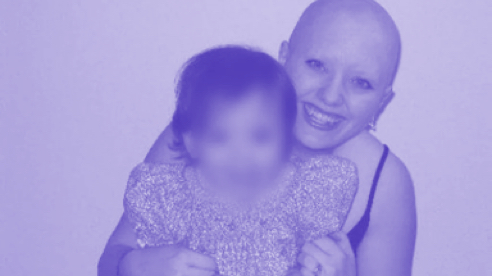
Who is Hope?
Share this episodeSEASON 01 | EPISODE 02Who is Hope?We delve deeper into the story of Hope Ybarra, a young mother whose family discovers she’s been faking her eight-year-long battle with terminal cancer and begins to suspect her own health isn’t all she’s...

What’s in the Water in Tarrant County?
Share this episodeSEASON 01 | EPISODE 03What’s in the Water in Tarrant County Andrea speaks to Deanna Boyd, the crime reporter who broke the Hope Ybarra case and discovers that Hope's was one of many Munchausen By Proxy cases in Tarrant County that Deanna...

Nobody Would Believe Me
Share this episodeSEASON 01 | EPISODE 04Nobody Would Believe MeAs we learn from Detective Mike Weber, the father in a Munchausen by Proxy case can be the most important ally--or the biggest obstacle--in protecting child victims from abuse. Andrea gets...

Nobody Would Believe Me (Part Two)
Share this episodeSEASON 01 | EPISODE 05Nobody Would Believe Me (Part 2)As we learn from Detective Mike Weber, the father in a Munchausen by Proxy case can be the most important ally--or the biggest obstacle--in protecting child victims from abuse. In part...
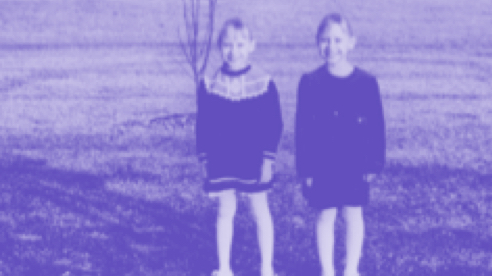
The Blast Zone
Share this episodeSEASON 01 | EPISODE 06The Blast ZoneAs Andrea contemplates what the future looks like for survivors of Munchausen by Proxy, she gets an unexpected message from two young women who’ve lived it. After appearing with Marc Feldman on a podcast,...

Can They Be Saved?
Share this episodeSEASON 01 | EPISODE 07Can They Be Saved?Andrea delves deep into her questions around the psychopathology of Munchausen by Proxy perpetrators. Floored by the similarities in the many cases she’s researched: she talks to two of the world's...
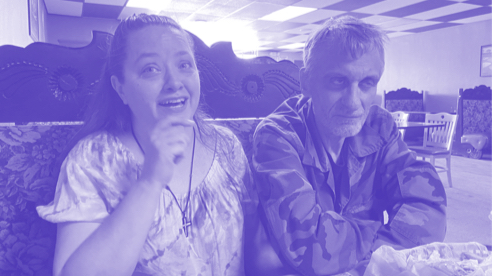
There’s Hope
Share this episodeSEASON 01 | EPISODE 08There's HopeAndrea has made an intense connection with Hope Ybarra's family, and asked experts, doctors, and the detective so many of her burning questions about Munchausen by Proxy. But she's become increasingly...
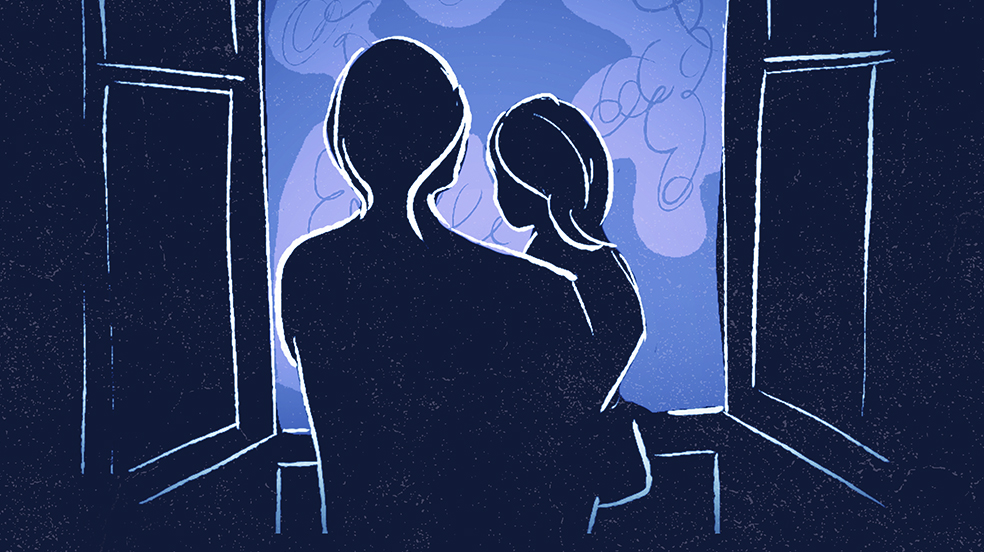
Blunt Force Instrument
Share this episodeSEASON 02 | EPISODE 01Blunt Force InstrumentMeet Andrea Dunlop, accomplished novelist and mother, as she embarks on a journey to understand the series of events that tore her family apart. In the first episode, we learn how Andrea first...

What Do We Do About Brittany?
Share this episodeSEASON 02 | EPISODE 02What Do We Do About Brittany?Heather Harris was one of many friends who was concerned about Brittany’s desperate need for attention for her daughter’s medical issues, and her inconsistent reports about Alyssa’s eating...

Where There’s Smoke
Share this episodeSEASON 02 | EPISODE 03Where There's SmokeDetective Mike Weber dives into the digital rabbit hole of Brittany’s online activity and makes a discovery so shocking it turns his investigation on its head and reveals the depths of depravity...

All In
Share this episodeSEASON 02 | EPISODE 04All InIn this season of Nobody Should Believe Me, we've heard from Sheriff Bill and Laura Waybourn about their concern for Alyssa- who was a distant family member of theirs. Now, we take some time to get to know this...

Tangled
Share this episodeSEASON 02 | EPISODE 05TangledWe hear more about Alyssa’s turbulent journey to become a Waybourn, as the family fights through a system that doesn’t know how to deal with medical child abuse. The Waybourns face the daunting task of...

The Trial
Share this episodeSEASON 02 | EPISODE 06The TrialYears after being separated from her daughter Alyssa, the Brittany Phillips case finally heads to trial. Dawn Ferguson, the prosecutor on the case elucidates the challenges of convincing a jury that a mother...

Megan
Share this episodeSEASON 02 | EPISODE 07MeganIn the wake of obtaining shocking public records about her sister’s case, host Andrea Dunlop decides to divulge the details of the second investigation into her sister, Megan Carter. Seated alongside Detective...

Only the Beginning
Share this episodeSEASON 02 | EPISODE 08Only the BeginningIn the aftermath of Brittany Philips' conviction, Alyssa faces a daunting new reality: the path to recovery. The long-term physical and psychological effects of Munchausen by Proxy abuse cast a long...

Pandora’s Box
Share this episodeSEASON 02 | EPISODE 09Pandora's boxIn this gripping episode, we delve into the heart-wrenching account of Jordyn Hope, another survivor of medical child abuse. Taking a brief departure from Alyssa's story, we shine a spotlight on a far more...

Everything Everything Everything
Share this episodeSEASON 02 | EPISODE 10Everything Everything EverythingIn the finale of Season 2, we finally hear from the person at the center of our story: Alyssa Waybourn. Despite the immense challenges she has faced, Alyssa shines as a beacon of...
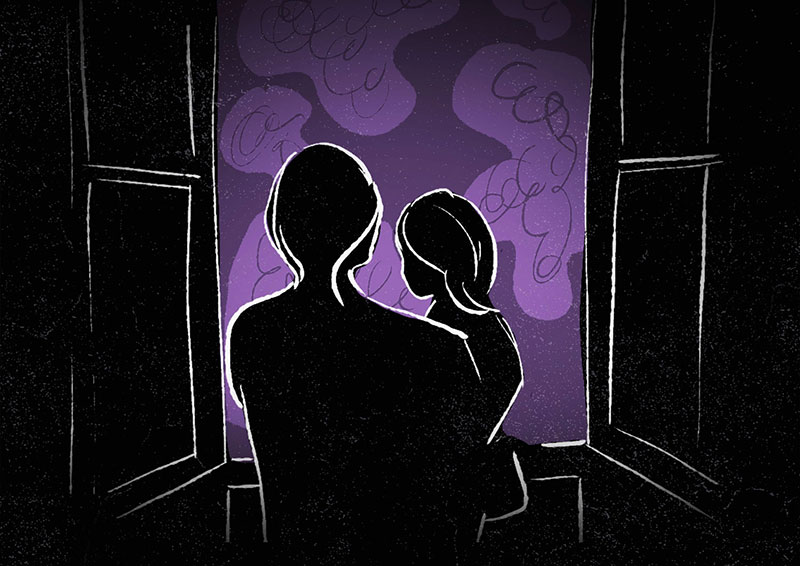
Special Report: Watching Take Care of Maya (re-release)
Share this episodeSEASON 03 | EPISODE 01Special Report: Watching Take Care of Maya (re-release) Warning: This content includes references to suicide and child abuse. If you or someone you know is having thoughts of suicide, help is available. Call or text...

In a Heartbeat
Share this episodeSEASON 03 | EPISODE 03In a HeartbeatIn our third episode, we look at a central piece of the story that was left unfinished at the time of Beata Kowalski’s death: the police investigation into her for medical child abuse. Along with...

Retaliation
Share this episodeSEASON 03 | EPISODE 04RetaliationNote: This episode contains sensitive content related to child abuse and suicide. Listener discretion is advised. Beata Kowalski’s tragic death by suicide in January of 2016 is at the center of the $220...

The Women
Share this episodeSEASON 03 | EPISODE 05The WomenIn the flattened version of the Maya Kowalski story that has dominated the headlines, Beata Kowalski is a mother who fell prey to age-old biases against women. This story attaches itself to the well-documented...

The Believers Part 1
Share this episodeSEASON 03 | EPISODE 06The Believers Part 1In today’s episode, Andrea seeks an outside perspective on the controversial Maya Kowalski case. Laura Richards, host of Crime Analyst and cohost of the Real Crime Profile podcast, joins Andrea to...

The Believers Part 2
Share this episodeSEASON 03 | EPISODE 07The Believers Part 2As the Kowalski v Johns Hopkins All Childrens trial barrels forward, new information comes to light each day about what really happened to Maya Kowalski during her time in the hospital. In part 2 of...

Trial of the Century
Share this episodeSEASON 03 | EPISODE 08Trial of the CenturyWith a verdict in the case days away, host Andrea Dunlop unpacks some of what’s happened so far in the Kowalski v Johns Hopkins All Childrens trial with lawyer and trial consultant Jonathan Leach....

The Verdict
Share this episodeSEASON 03 | EPISODE 09The VerdictAndrea and special guest Bex (aka our Florida pediatrcian friend) process the shocking verdict in the Maya Kowalski trial. After 9 weeks of testimony, the jury awarded the Kowalski family nearly $300 million...

The Verdict Part 2
Share this episodeSEASON 03 | EPISODE 10The Verdict Part 2Andrea checks in with lawyer and trial consultant Jonathan Leach hours after the Kowalski verdict comes down. They talk about the judge’s decision to disallow testimony from the defense on medical...

Star Witness
Share this episodeSEASON 03 | EPISODE 11Star WitnessAs we continue to process the far-reaching implications of the shocking verdict in the Kowalski case, we take a closer look at Maya Kowalski’s testimony and what we know about her. She’s emerged as a...

System Override
Share this episodeSEASON 03 | EPISODE 12System OverrideWith the jury's stunning $242 million verdict in favor of the Kowalski family, host Andrea Dunlop looks at why this case has struck such a nerve on both sides of the political spectrum. She examines why...

What Now?
Share this episodeSEASON 03 | EPISODE 13What Now?Just when we thought the endless saga of Kowalski v Johns Hopkins All Childrens was over...it turns out it might only be beginning. In this episode, lead attorney for the Johns Hopkins All Childrens defense...

Media Circus
Share this episodeSEASON 03 | EPISODE 14Media CircusThis week Andrea examines how the harrowing and complex story of the Maya Kowalski case turned into a pop culture moment, and spread dangerous misinformation in the process. We continue our conversation...

The Trials of Dr. Sally Smith (Season Finale: Part 1)
Share this episodeSEASON 03 | EPISODE 15The Trials of Dr. Sally Smith (Season Finale: Part 1)In an exclusive interview with Dr. Sally Smith, host Andrea Dunlop travels to Florida to speak to the embattled child abuse pediatrician about her life and work and...

Bad Press (Season Finale: Part 2)
Share this episodeSEASON 03 | EPISODE 16Bad Press (Season Finale: Part 2)In the second part of our exclusive interview with Dr. Sally Smith, we discuss how the media coverage of her reached a fever pitch and turned her life and career upside down. We explore...

Dangerous Women (Season Finale: Part 3)
Share this episodeSEASON 03 | EPISODE 17Dangerous Women (Season Finale: Part 3)In the third and final installment of our exclusive interview with Dr. Sally Smith, she shares her side of what happened in the Maya Kowalski case, revealing how perilous Maya’s...

What Jack Knew
Share this episodeSEASON 03 | EPISODE 18What Jack KnewAs we prepare to launch Season Four next month, we’re revisiting the subject of Season Three—the landmark Kowalski v. Johns Hopkins All Children’s verdict, in which a jury awarded Jack Kowalski more than...

What Happened to Beata?
Share this episodeSEASON 03 | EPISODE 19What Happened to Beata?This week's episode delves into the intricate details surrounding Beata Kowalski's death, which was central to the Kowalski's lawsuit against Johns Hopkins All Children's, as well as the...

Kowalski Case Update with Ethen Shapiro
Share this episodeSEASON 03 | EPISODE 20 Kowalski Case Update with Ethen Shapiro Join Andrea as she delves back into the ongoing legal battle of Kowalski v. Johns Hopkins All Children's Hospital, with Ethen Shapiro, the lead defense attorney for Johns...
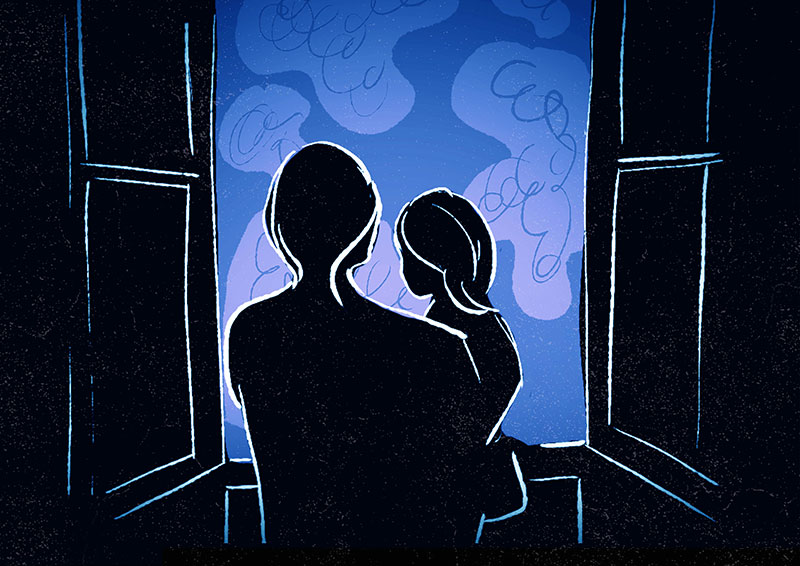
Welcome to Hutchinson
Share this episodeSEASON 04 | EPISODE 01 Welcome to Hutchinson Welcome to Season 4 of Nobody Should Believe Me! This season we are following the story of Jordyn Hope as they unravel the secrets of their childhood. After revelations that they were abused as a...

“I Brought You Into This World I Can Take You Out”
Share this episodeSEASON 04 | EPISODE 02 “I Brought You Into This World I Can Take You Out” While visiting their hometown, Jo reconnects with their older sister, Crystal, to have the deeply honest and heart-wrenching conversation their mother never wanted...

Not Without My Daughter
Share this episodeSEASON 04 | EPISODE 03 Not Without My Daughter As we dig deeper into Jo’s history, we tackle one of the many confusing aspects of their childhood: their paternity. We navigate the many twists and turns around the father figures in Jo’s...


